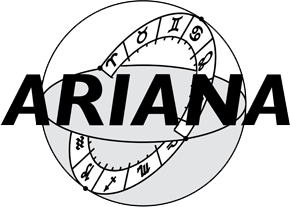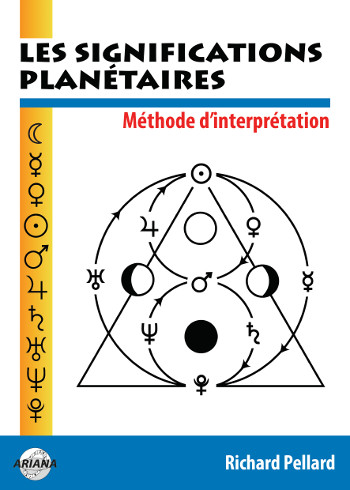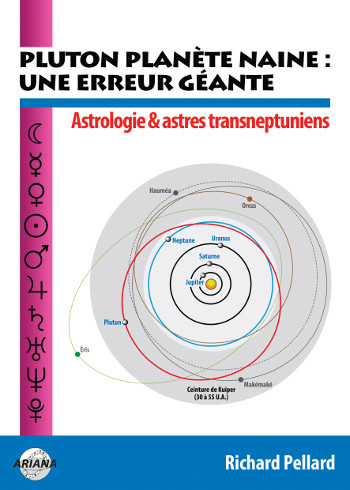Your Planets
Portraits of the Planets
Aspects between Planets
The planetary ages
The planetary families
Planets in Signs
The Planets in comics


The interpretation examples that we are suggesting are very far from being exhaustive : they only show and outline a general frame describing the issues of the aspect. They should therefore not be taken literally. Each being brings indeed its own responses, more or less original, to the questions raised by an aspect. There is no magic formula. Through using the R.E.T. and the Theory of Ages and combining logic, observation and imagination, you will be able to develop a thousand other possible meanings, a thousand other variations on the same theme.
“Big T” issue (extensive Transcendance). How to blend switching from the multiple to the duo-duel (Neptune ‘eT’) with maintaining the absolute multiple (Pluto ‘tT’)? How to operate together unpredictable moods and maximum aloofness? How to experience strange sensations while staying inscrutable? This aspect excludes levels ‘R’ (communicative sociability), ‘E’ (sense of the concrete) and ‘r’ (decisive willpower).
You are a pure intuitive who only refers to the deep injunctions of his interiority. You have the highest sense and feeling of the occult, the mysterious, the subtle, the underlying, the invisible, the unnameable and the inexpressible. You testify in your own way, through your experience woven with almost incomprehensible paradoxes and your actions which seem miraculously guided by a safe but incomprehensible unconscious, to the reality of another dimension than that of the first evidences and raw existence. Your quivering presence is like the concrete testimony of an elsewhere, of an unfathomable distance that you know how to bring to life through your humanity. Back from all the illusory and simplistic explanations of texts and illustrations of picture books, you nevertheless maintain a visceral faith in the living man, this chiaroscuro being woven with ambiguities of which you do not quite resolve yourself. say that one day, we will publish his latest news.
Balanced dissonance : you switch alternately from unpredictable nebulous moods (Neptune) to a cold insightful aloofness (Pluto), without being able to bring yourself to choose. Depending on whether one or the other function dominates in your experience, you can adopt the following attitudes :
If and when Neptune dominates : Prisoner of your chimeras, exalting utopias or interior or exterior intoxications, you are incapable of any deep and caustic lucidity. You sing in chorus and wholeheartedly with specters of sirens to ward off any threat of annihilation and tell you that with a little incarnate faith you can overcome death. You are ready to abandon yourself to any euphoric philosophy, mysticism or smoky and preferably collectivist ideology, likely to ward off your intuition of the inanity of all things. You navigate the stormy sea of your true intuitions and false clairvoyances, unable to unravel the confused and tangled skein of your complexities. You cling desperately to the raft of the jellyfish of your inspired or uninspired states of mind and to the visionary or fantastical productions of your imagination to delay as much as possible dark prospects that you refuse to really consider.
If and when Pluto dominates : you are hostage to an abyssal skepticism and a basic and radical indifference, to which all that is most tenuous and profoundly human is alien. The only thing that counts for you is the icy solitude of being in itself, of which no emotional or lived manifestation can testify to the deep and indescribable mystery. Your desperate and caustic lucidity undermines at the base the smallest hope of the emergence of something else, the slightest living faith which could dissipate the darkness, the most subtle tremors of other possibilities which would claim to incarnate. You are elsewhere, in an extra-personal dimension which forbids you even to the vital minimum, the tiniest quantity of feeling of living, the “I don’t know what and almost nothing” which makes you exist all the same and despite everything. You have no refuge but the seat of the universal spirit or your untranslatable certainty that tomorrow will sing radically different music.
If you learned to control this dissonance, you know that there is a time for listening to your intuitive feelings and a time for deep intuitive brainstorming, and know how to flawlessly alternate these two functions.
If you managed to sublimate this dissonance, you have deliberately sacrificed any wild mystical dreams for the sake of a silent inner quest for your deep genuine self ; or you have abdicated any inclination towards absurdity and anarchism in favour of emotionally connecting to your inner self.
▶ Introduction aux significations planétaires
▶ The Neptunian: Psychological profile
▶ The neptunian function ‘eT’ (existence of Transcendence)
▶ Uranian stage (from 30 to 84 years old): the age of individualization
▶ Neptunian stage (from 84 to 164 years old): the age of depersonalization
▶ Uranus-Neptune-Pluto: extensive Transcendence
▶ Venus-Mars-Neptune: intensive existence
▶ The Plutonian: Psychological profile
▶ The plutonian function ‘tT’ (transcendence of Transcendence)
▶ Uranian stage (from 30 to 84 years old): the age of individualization
▶ Plutonian stage (from 164 to 248 years old): the age of disappearance
▶ Uranus-Neptune-Pluto: extensive Transcendence
▶ Mercury-Saturn-Pluto: intensive transcendence

Les significations planétaires
par
620 pages. Illustrations en couleur.
La décision de ne traiter dans ce livre que des significations planétaires ne repose pas sur une sous-estimation du rôle des Signes du zodiaque et des Maisons. Le traditionnel trio Planètes-Zodiaque-Maisons est en effet l’expression d’une structure qui classe ces trois plans selon leur ordre de préséance et dans ce triptyque hiérarchisé, les Planètes occupent le premier rang.
La première partie de ce livre rassemble donc, sous une forme abondamment illustrée de schémas pédagogiques et tableaux explicatifs, une édition originale revue, augmentée et actualisée des textes consacrés aux significations planétaires telles qu’elles ont été définies par l’astrologie conditionaliste et une présentation détaillée des méthodes de hiérarchisation planétaire et d’interprétation accompagnées de nombreux exemples concrets illustrés par des Thèmes de célébrités.
La deuxième partie est consacrée, d’une part à une présentation critique des fondements traditionnels des significations planétaires, d’autre part à une présentation des rapports entre signaux et symboles, astrologie et psychologie. Enfin, la troisième partie présente brièvement les racines astrométriques des significations planétaires… et propose une voie de sortie de l’astrologie pour accéder à une plus vaste dimension noologique et spirituelle qui la prolonge et la contient.
Téléchargez-le dès maintenant dans notre boutique

Pluton planète naine : une erreur géante
par
117 pages. Illustrations en couleur.
Pluton ne fait plus partie des planètes majeures de notre système solaire : telle est la décision prise par une infime minorité d’astronomes lors de l’Assemblée Générale de l’Union Astronomique Internationale qui s’est tenue à Prague en août 2006. Elle est reléguée au rang de “planète naine”, au même titre que les nombreux astres découverts au-delà de son orbite.
Ce livre récapitule et analyse en détail le pourquoi et le comment de cette incroyable et irrationnelle décision contestée par de très nombreux astronomes de premier plan. Quelles sont les effets de cette “nanification” de Pluton sur son statut astrologique ? Faut-il remettre en question son influence et ses significations astro-psychologiques qui semblaient avérées depuis sa découverte en 1930 ? Les “plutoniens” ont-ils cessé d’exister depuis cette décision charlatanesque ? Ce livre pose également le problème des astres transplutoniens nouvellement découverts. Quel statut astrologique et quelles influences et significations précises leur accorder ?
Enfin, cet ouvrage propose une vision unitaire du système solaire qui démontre, chiffes et arguments rationnels à l’appui, que Pluton en est toujours un élément essentiel, ce qui est loin d’être le cas pour les autres astres au-delà de son orbite. Après avoir lu ce livre, vous saurez quoi répondre à ceux qui pensent avoir trouvé, avec l’exclusion de Pluton du cortège planétaire traditionnel, un nouvel argument contre l’astrologie !
Téléchargez-le dès maintenant dans notre boutique